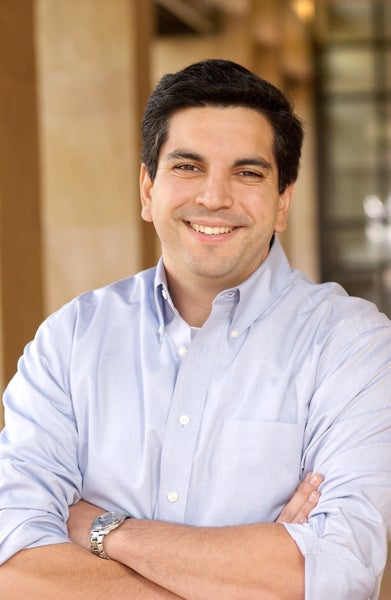Five things to know about drinking at Stanford
Ralph Castro, associate dean of students and director of the Office of Alcohol Policy and Education, answers five questions about drinking at Stanford with information that all parents should know.
Stanford appears to place a big emphasis on engaging parents in a discussion of drinking on campus. Why is that?
That’s true. We write to new parents during the summer before their students come to Stanford to encourage them to have a frank discussion about drinking. And then it’s one of the first subjects parents hear about when they arrive, including from the provost at the dinner he hosts for parents.
That’s because studies here and elsewhere show that students who talk with their parents about drinking have fewer alcohol-related issues. In other words, parents have more influence than they might suspect. We want to create a partnership with parents to prevent high-risk drinking among Stanford students. We hope, too, that candid conversations continue throughout students’ college careers.
What programs does Stanford offer to help prevent high-risk drinking among students?
We have many programs, beginning with an online educational program all freshmen must take before arriving on campus.
We offer Cardinal Nights, which are alcohol-free programs designed so that no student feels isolated by a decision not to drink. The program, which we launched about four years ago, recently won a national award, and, indeed, we have found it to be very successful among Stanford students. Most events are packed beyond capacity, and we hold as many as three events every weekend.
In addition, our staff visits all residences with first-year students in the first several weeks of classes to provide alcohol education. Our objective is to change the campus culture so that high-risk drinking is not considered a rite of passage any more.
How does drinking at Stanford compare with other colleges nationwide?
Stanford is very similar in terms of national norms for quantity and frequency of drinking. Surveys show that most Stanford students drink moderately or not at all. But some percentage engages in high-risk or “binge” drinking, often with hard alcohol. There’s nothing worse than having a student drink to excess and need transport to Stanford Hospital. It happens here just as it does elsewhere. So, we’re dealing with the same issues as other colleges and universities. We consistently talk to our peers to share information and ideas.
But, we’ve definitely seen progress. After each event, Cardinal Nights sends its audience a short survey asking for feedback on the evening’s event and information about drinking habits. In 2011, 80 percent of student respondents said they needed alcohol to have fun at Stanford. By 2014, the situation was completely reversed: 95 percent of respondents said they did not need alcohol to have fun. So we’re seeing a culture change.
The surveys also have shown that 25 percent of students would likely have been drinking if they had not attended that evening’s Cardinal Nights event. That represents a huge reduction in risk for students. We built this program to support non-drinkers in a way that we hadn’t before, but we’re actually pulling drinkers out of the drinking milieu as well.
What are the consequences of student drinking at Stanford?
Excessive drinking can—and does—result in arrest. Stanford students are not immune from prosecution and are commonly cited for being a minor in possession of alcohol, being intoxicated in public or driving under the influence, which involves being arrested and transported to jail.
Almost all of Stanford’s emergency hospital transports result from high-risk drinking shots of hard liquor. That’s just awful for everyone, including the parents who get a call that their son or daughter is in the emergency room. Another thing that worries us a lot is the relationship between drinking behaviors that harm others such as assaults and violence. That’s been a focus of much discussion on campus for the past several years, and it will continue to be so.
What advice do you give to parents to help them talk to their children about alcohol use?
Just having a conversation appears to be enough to affect alcohol use. Be open, frank and honest with your son or daughter. Provide clear and consistent expectations for them. Things have changed since we were in college. High-risk drinking activities such as rapid hard-liquor consumption are different now and are very dangerous.
When we ask students who don’t drink why that is so, they often will say it’s because their parents don’t want them to. That’s something all parents might want to bear in mind.

